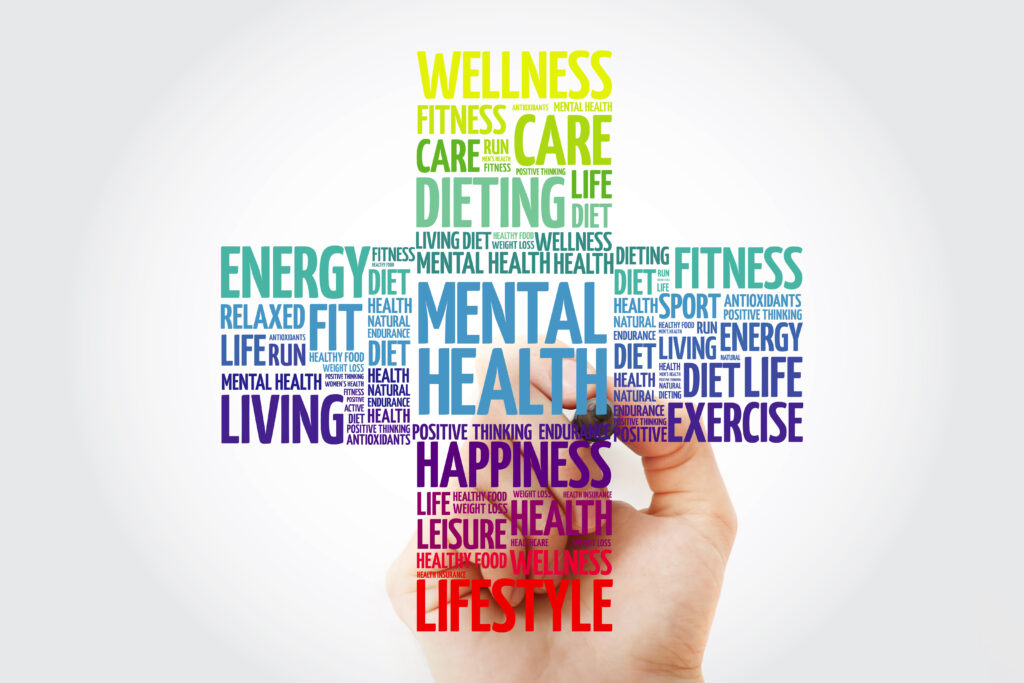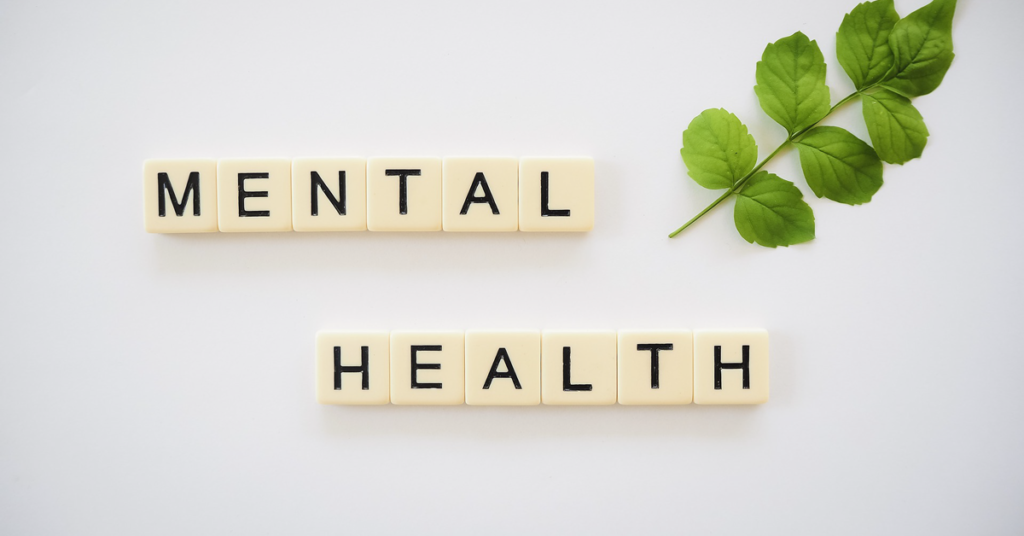The term “Mental Health” is a hot topic in the world today. After dealing with the Covid-19 pandemic for the past two years, people have become very aware of how their mental and emotional state can impact their daily living and relationships. The truth is that mental health has always been an important function of the human being, but it has not always received the acknowledgement and attention that it deserves. Mental Health can be defined as: the state of a person’s psychological, emotional, and behavioral well-being. We all have a mental health state, whether healthy or unhealthy. Some people are aware of their mental health state, while others are not. One way to determine your mental health state is to explore your thoughts, emotions, and behavior. Our thoughts create emotions or feelings, and our emotions cause us to act or behave a certain way. If our thoughts are healthy, then our emotions and behaviors will be healthy and appropriate. However, if our thoughts are unhealthy or negative, that will lead to unhealthy and unstable emotions and behaviors.
What Influences the State of Our Mental Health?
There are three main elements that influence the state of a person’s mental health:
- Environment – Healthy homes, relationships, and communities where there is nurturing, acceptance, encouragement, and love will generally create mental wellness in its members. However, abuse, domestic violence, community violence, and oppression/racism are elements that can create mental and emotional instability in the individuals who are exposed to these environmental pathologies.
- Trauma – A trauma can be described as an extremely stressful, dangerous, or frightening event. Some examples of trauma are: child abuse (physical, emotional, sexual), physical or sexual assault, death of a loved one, natural disaster, domestic violence, vehicular accident, etc… A traumatic event can lead to either short term or long term mental and emotional instability, disrupting a person’s ability to cope with stress or daily life events.
- Genetics – Research has proven that there can be a genetic component to certain mental health disorders such as Depression, Anxiety, Bipolar Disorder, and Schizophrenia.
Signs of Mental Wellness
How do you know if you are mentally well? People who are mentally well tend to have some of the following behavioral characteristics:
- Positive thoughts and attitude
- Optimistic
- Patience with others
- Empathy towards others
- Ability to cope with stress without the use of alcohol or drugs
- Healthy communication skills (No yelling, name-calling, or aggressive language)
- Ability to set boundaries with others
- Being goal-oriented
- Healthy and stable relationships

Signs of Mental Instability or Mental Illness
Mental instability does not always mean that a person has a mental health diagnosis. It can mean that a person has some unhealthy thought patterns that are causing some of the following behaviors:
- Irritability
- Argumentative and quick to fight with others
- Feeling lethargic
- Eating or sleeping too much or too little
- Using excessive amounts of alcohol or experimenting with drugs
- Feeling fearful or anxious
- Desire to control others
Mental illness will present with more severe symptoms that require professional intervention such as:
- Feeling hopeless, helpless, or numb
- Having suicidal thoughts
- Self-harming behaviors (cutting, burning, pulling out hair, etc…)
- Alcohol or Drug addiction
- Paranoia and delusions
- Hallucinations (hearing voices or seeing things that others cannot hear or see)
- Severe mood swings with high-risk behaviors
- Inability to perform daily tasks
How to Take Care of Your Mental Health?
Our mental health state is the foundation of how we will live our lives. Our productivity, relationships, and overall well-being is dependent upon our mental health state. Here are some ways that you can be intentional about taking care of your mental health:
- Adequate sleep
- Engage in healthy relationships and get out of toxic relationships
- Set firm boundaries – become comfortable with saying “NO”.
- Healthy eating habits
- Exercise and stay active
- Practice self-care (restful and fun activities)
- Seek counseling or therapy with a licensed professional, if needed
Know that you are an important and valuable presence on this earth. Take care of your mental health and enjoy your life!
Don’t navigate your mental health challenges alone. Starting virtual therapy can be the first step toward creating positive change in your life. Whether you’re dealing with anxiety, stress, or relationship issues, I’m here to help.
Schedule your virtual therapy session today and begin your journey to a healthier, more balanced life. I offer convenient, online counseling for residents of Georgia and Florida. Reach out today to get started.

